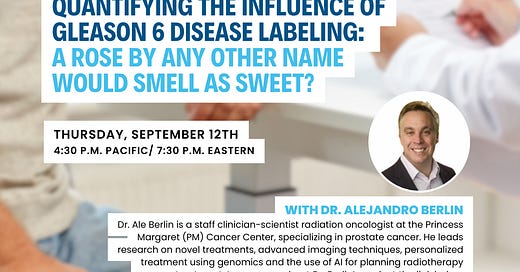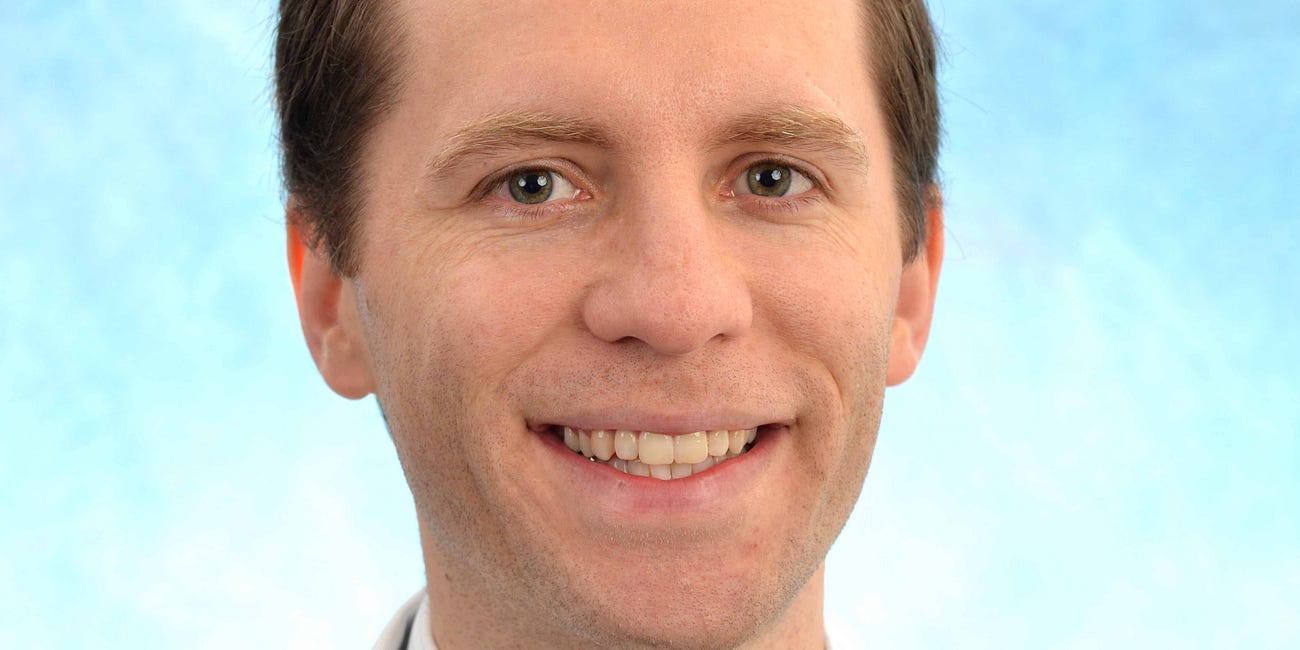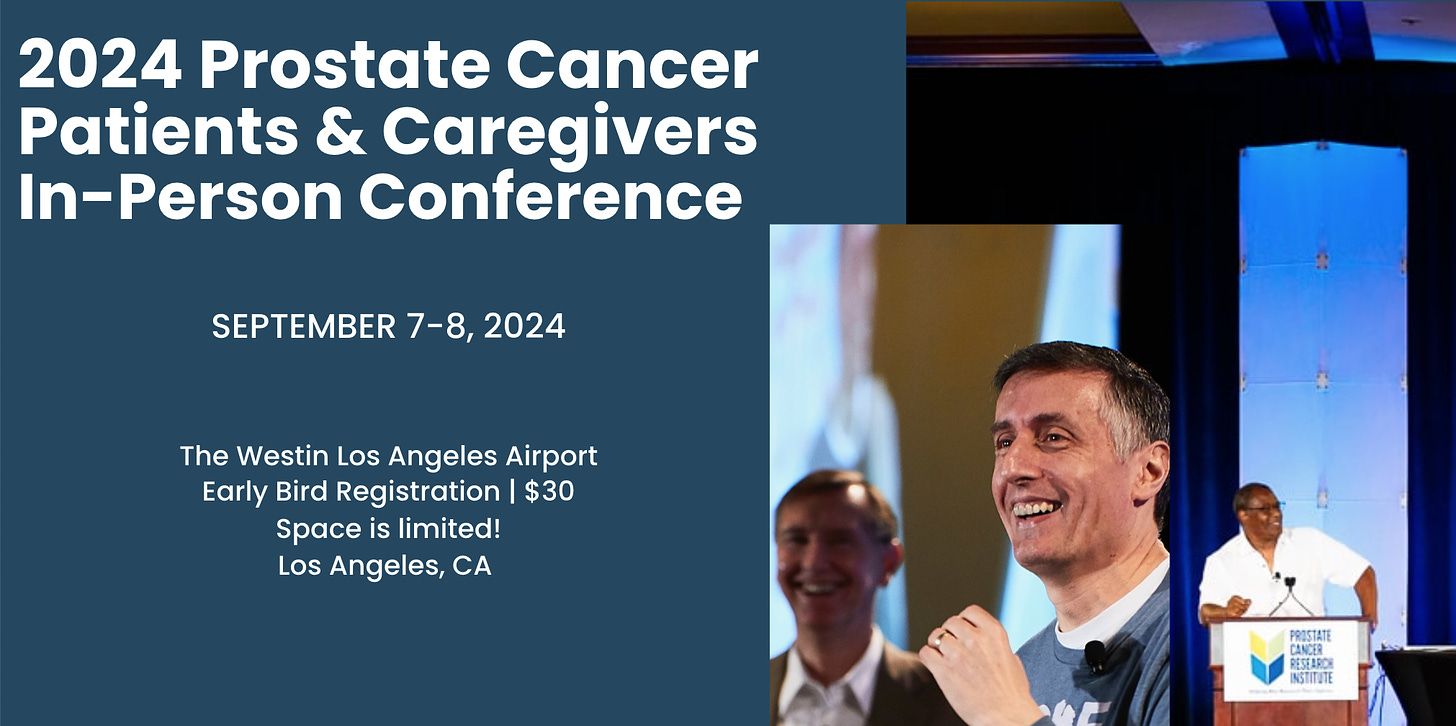By Howard Wolinsky
I have been struggling with the term caregiver for years.
It just didn’t seem fit for patients like me and maybe you who are on Active Surveillance for low-risk prostate cancer. We’re typically can take care of ourselves.
So how does caregiver fit?
My wife Judi served on the advisory group for an AS study. They wanted to call her a caregiver. She resisted. The study organizers saw her point but couldn’t stop calling her a caregiver.
I recently came to recognize that a certain amount of caregiving, especially on the emotional level, is done for patients on AS. If you can’t beat ‘em, join ‘em, right? So I said I’d—reluctantly—go along with the term.
Enter Rick Davis, founder the AnCan Foundation, who offered up a different term: care partner.
Here’s his position: “Here at AnCan we much prefer the term care partner, even when it's not your significant other. We consider caregiving to be a partnership more often than not. For AnCan'rs supporting HW, it's very much a partnership. We get a lot from The Active Surveillor, and we hope we give back in return. So AnCan would urge a rewrite of this column replacing Care Partner with Care Giver!! Be well, H ... O&U”
I like the sound of care partner. But I’d to know what you think. Caregiver? Care partner? Or maybe you can suggest a better fitting term?
So weigh in here: https://forms.gle/Ezv9cmTGMe9CG4VC8
I’ll follow your direction on what to call these indispensable people.
Canadian researcher Alejandro Berlin suggests Gleason 6 would ‘smell’ better if it weren’t called a cancer
The Prostate Cancer Foundation Canada and its Active Surveillance Support group are observing Prostate Cancer Awareness with a program on whether Gleason 6 lesions should even be considered a cancer at all.
Dr, Alejandro Berlin, a researcher and radiation oncologist at Princess Margaret Cancer Center in Toronto, will be the featured speaker at 7:30 pm Eastern on Thursday, Sept. 12. Register here: http://bit.ly/PCAM24-AS
Ale and I are members of the Gang of Six (on Gleason 6) that have been calling for renaming Gleason 6 as a non-cancer. We coauthored Low-Grade Prostate Cancer: Time to Stop Calling it Cancer, the most-read article in the Journal of Clinical Oncology in 2022. It sparked a controversy—and more papers. The experience led me to enroll for a Master’s in Public Health at the University of Illinois at Chicago.
Ale completed his training in Chile, Israel, and Canada. His clinical practice focuses on the discovery and clinical evaluation of novel therapeutics capitalizing on genomic characterization genitourinary malignancies, and advanced molecular and MR imaging. He is a PI of the NRG GU010 study investigating the use of clinicogenomic risk stratification for treatment individualization in men with localized prostate cancer. He also leads a clinical initiative quantifying the human and machine performance during the clinical deployment of an in-house developed AI radiotherapy planning method for prostate cancer.
ASPI looking for volunteers
Tinker, tailor, soldier, sailor, rich man, poor man, beggar-man, thief. And PR professional.
Patients on Active Surveillance for low-risk prostate cancer of course come from all walks of life.
And Active Surveillance Patients International (ASPI) is looking for some volunteers, particularly, at the moment, volunteers with public relations experience.
Contact Bill Manning, the new executive director at ASPI, at bmanning@aspatients.org for details on this and other ways you can help.
Is AI the new sheriff in town?
By Howard Wolinsky
Artificial Intelligence (AI)is being used to read pathology slides and MRI scans, often getting better results than the medical experts. Now AI is making its moves on Active Surveillance, offering guidance on whether patients should go on AS or undergo aggressive treatment.
Active Surveillance Patients International (ASPI) is holding a webinar entitled Evolution of Active Surveillance at 12-1:30 p.m., Saturday August 24. Register here: https://zoom.us/meeting/register/tJ0tfu2urTIjHtZZJwRcRF6a-h426tLw9stk
The program features Leonard Marks, MD, professor of urology at David Geffen School of Medicine at UCLA, whose database of 5,000 patients was used to develop Avenida Health's Unfold AI system. Marks said the system may be able to predict the durability of active surveillance using an AI map of prostate cancer to determine how big a lesion is.
He said, "smaller is better" in terms of lesion size and durability of AS as a management technique. (Note: I have a story coming on this research.)
Also featured at the meeting are and Scientific Director, Meghan Tierney and Medical Science Liaison, Mia Li-Burton, for Artera, the developer of cancer diagnostics.
Earlier this year Artera released its Artera AI Prostate Test that spares men—up to 60%— avoid hormone therapy and its side effects. This was the first AI test of its kind.
Artera has just released an updated version of its test for patients to learn about the predicted aggressiveness of their prostate cancers and help guide the decision between AS and aggressive treatments.
See you in September in LA at PCRI
By Howard Wolinsky
The Prostate Cancer Research Institute’s 2024 Prostate Cancer Patients & Caregivers conference will be held in-person for the first time since 2019.
The popular patient-oriented meeting switched to virtual in 2020 because of the COVID-19 pandemic. But it’s back in person, Sept. 7-8 at the Westin Los Angeles Airport.
Register here.
I’ve been invited to moderate two sessions there. So please stop by and say “yo.” Details to come.
Still time to share your opinions about AI and prostate cancer through Sept. 1
By Howard Wolinsky
Tick-tock, Less than one month left to share your opinions on an important issue for urology patients—the growing use of artificial intelligence (AI) in diagnosing and tumor management choices for prostate cancer,
Around 300 or so of you have sounded off. Let’s shoot for 500. It takes about 15 minutes to complete the confidential questionnaire.
Peter Evancho, an attorney and second-year medical student at the University of Maryland, Baltimore, is conducting a policy analysis about AI and urology and is asking for our help.
Please take a few minutes and answer Evancho’s survey and share your thoughts about AI and urology care. Survey link: https://rs.igs.umaryland.edu/surveys/?s=3R37KJMPERYEWMH9





With all the emotional baggage that people often bring along with their illnesses, I think this is not a question that deserves anyones time. There are much more important issues that need and deserve attention. This is only my opinion. It is, perhaps, more important that Caregivers or care partners recieve the attention they deserve. Screw the name, encourage, and enhance the people. k mason .